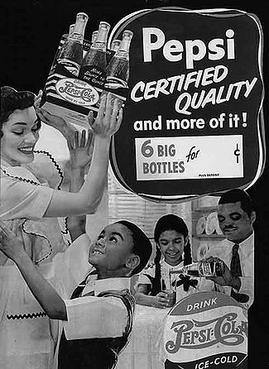At some point, however, I began to experience headaches, especially when consuming cola at night. So cutting down my intake started to look like a good idea. My weight fell a bit, in the process, making me rethink attributing the weight gains I’d made in my late twenties solely to a lack of exercise. And I discovered that carbonated soft drinks were taking a toll on my teeth.
With problems like that staring me in the face, I gave in and cut back. Proof that I wasn’t truely addicted might be the fact that I was able to do so quite efficiently. And in honor of National Caffeine Awareness Month (March), here are three tactics that helped:
- Drinking cola shouldn’t be the highlight of my day. Diet is all about one’s mindset. Like a child eating her last meal, I wanted to consume as much as possible, a hold over from the days when my parents restricted my diet. I’ve noticed this is true for others, be it for snacks, desserts, fast food, and even regular healthy stuff. Blame it on the “super-sized” American cultures. I just reprioritized.
- Maximize utility. I really didn’t like other colas, considering them poor Pepsi substitutes. However, I’d naturally order Coke when Pepsi products weren’t available. So my solution was to cut out non-Pepsi colas (e.g., Coke) out of my diet completely, choosing an alternative non-cola drink when at a restaurant with a Coca-Cola contract.
- Switch to fruit juice. I’m not a big fan of fruity flavors, especially when it comes to drinks. (I refuse to touch grape, cherry, and orange sodas!) After a few dead ends, my health-conscious chiropractor baby sister finally found a fruit juice that wasn’t too sugary for me. The organic Honest Kids Super Fruit Punch is about the only thing that doesn’t taste to me like the terrible stuff they’d serve at church potlucks when I was a kid. A.k.a. “red paint.” So now I have a sugary alternative to consume at home, and I’m getting more servings of fruit now too.
And, yes, I wrote this while drinking a can of Pepsi.



